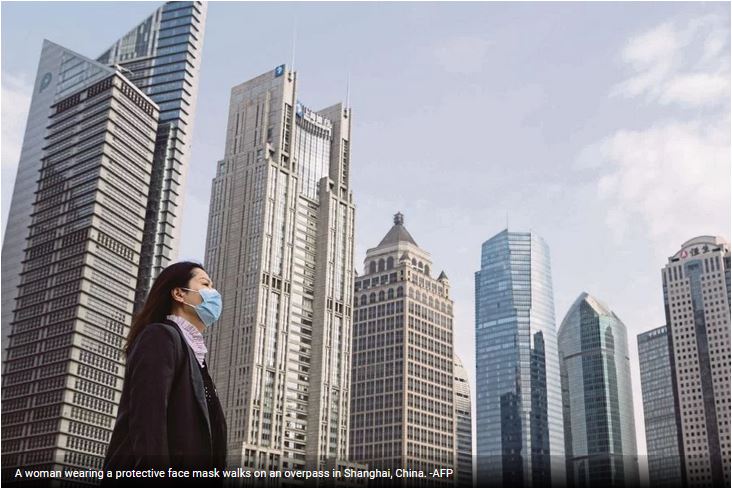Will we learn from the viral episodes?
Emeritus Professor Tan Sri Dato' Dzulkifli Abdul Razak
Opinion - New Straits Times
February 25, 2020
In the earlier days, the then elusive coronavirus was ‘welcome’ as an effective agent of change where others have failed. Think about the long drawn protest launched by the Hong Kong citizens demanding more transparency and democratic rights.
Despite the various ploys, including allegedly police aggression, to get the protesters to stay away, they were all in vain. At times, it worsened and got more confrontational with most wearing face-cum-gas masks to hide their identity.
Meanwhile, the Hong Kong government tried to ban the use of face masks in order to deter from further mass participation. But the courts were unconvinced and refuse to go along. As a result many more were emboldened. Some stared to adorn full anti-tear gas gears in their fight for freedom.
Fast forward, the converse was the case. Virtually all the protesters ‘volunteered’ to stay indoors. The umbrella movement of thousands disappeared almost over night. So too the anti-riot squads who were despararely trying to get situations under control for a straight seven months.
Ironically, by this time the Hong Kong government was encouraging the use of face masks especially when intermingling in public, and certainly so if the mass is still on! It reportedly lamented the lack of supplies, managing to secure only a few million face masks when it actually requires some 40 million pieces. What a U-turn, indeed!
School children seem to be the most jubilant with their unexpected extended school holidays. Or at least abstaining from extra tuition classes that are popular in the rush to sharpen competition, taking fun out of learning. But now they are having fun while it lasted.
All these, thanks to the Covid-19, came into being so abruptly making Wuhan in China, the epicentre. Very quickly it took the world by storm with no sign of abating yet. Not just the biological aspect, the journalistic ones too are still to be reined in. Beyond that we read of several unusual headlines that are otherwise unimaginable. And they are not fakes either!
Take three examples: First, Hong Kong gang steals toilet rolls. Allegedly, the item has become hot property in the densely packed business centre, despite government assurances that supplies remain unaffected by the virus outbreak. Since many are unable to restock quickly enough, lengthy queues formed ready to strip bare shelves of toilet rolls the moment the stores open. Short of that some resorted to stealing. Hysteria swept through Hong Kong since the Covid-19 outbreak balloned on mainland China.
Another headline cry: China to destroy paper currency. That is, the government is contemplating to instruct banks to remove incoming paper notes from circulatiom and replace them with new ones. It is claimed that directions were out to keep the cash under quarantine for14 days and to be disinfected before returning it for public use. Particularly those from the markets, public transportation and hospitals where the exchanges are most active. The aim is to cut the possibilities of transmission.
The third headline pertains to a ‘quiet’ China. Fellow humans are eventually "caged" (lockdowned?) due to the virus jumping species from its ‘caged’ animal hosts. The human mouths that are too willing to devour bugs-infested animals, are now reluctantly ‘sealed’ by N95 face masks.
Or by makeshift versions ranging from plastic bottle total head gears to sanitary towels, when the real things are nowhere to be found. Death is in the air as the number of those infected increased by the day, especially at the Hubei province, where Wuhan is located. Viewed this way the ‘coronavirus’ could be ‘crowned’ (corona in Latin) as the power that forced a rather restless society to be more settled. This is not possible otherwise.
It somehow reminded us to go back to basics in ensuring good hygiene for a lasting health care. What is needed most, is keeping the environment - of humans and the surrounding - unstingingly clean. Washing and sanitising hands is the key, so as not contaminate other parts of the facr or items. Similarly in sharing intimate spaces where airborne transmission is likely through coughing and sneezing.
Ordinarily, it calls for social ‘decorum’ that are held high by all as a mark of civility and respect. Unfortunately, this is now neglected in a world of digital natives where being ‘viralled’ into the cybersphere is celebrated. That is, until the virulent Covid-19 get into the picture. Will this be a lesson that changes for the better is the ultimate question.
The writer, an NST columnist for more than 20 years, is International Islamic University Malaysia rector

